Conducting Par Inventory Inquiries
Conduct par inventory inquiries by selecting .
|
Page Name |
Definition Name |
Usage |
|---|---|---|
|
Review Par Locations by Item Page |
CART_ITEM_INQ_INV |
Search for items across par locations. This page provides a list of all par locations in a business unit that stock a particular item. |
|
Review Par Location Count (inquiry) Page |
CART_COUNT_INQ_INV |
View count history for a specific par location and a range of count IDs. |
Use the Review Par Location Count page (CART_COUNT_INQ_INV) to view count history for a specific par location and a range of count IDs. This page displays count history for a specific par location. You can use this page in conjunction with the Review Par Locations by Item inquiry page to evaluate whether a par location is likely to have on-hand quantity of an item.
Navigation:
> >
This example illustrates the fields and controls on the Review Par Location Count - Status page.
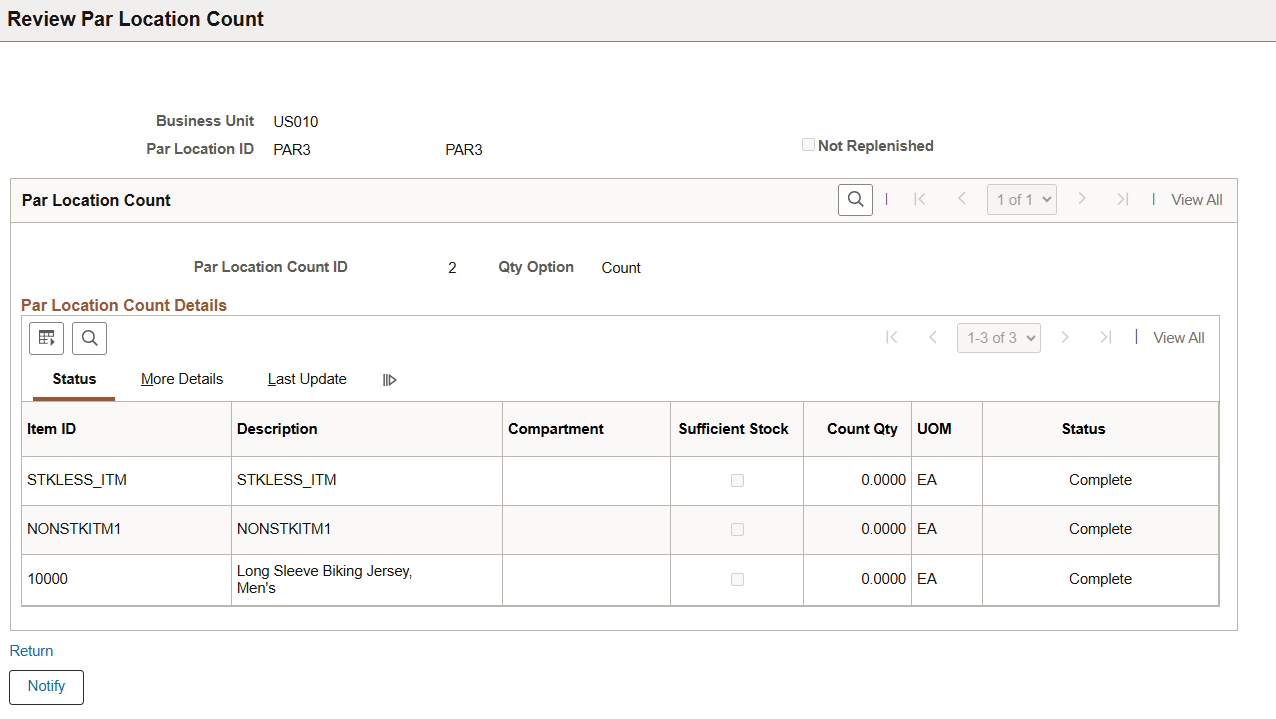
Review Par Location Count - Status tab displays the status of the count (unprocessed/complete) along with the item details, description, compartment, stock, and quantity.
This example illustrates the fields and controls on the Review Par Location Count - More Details page.
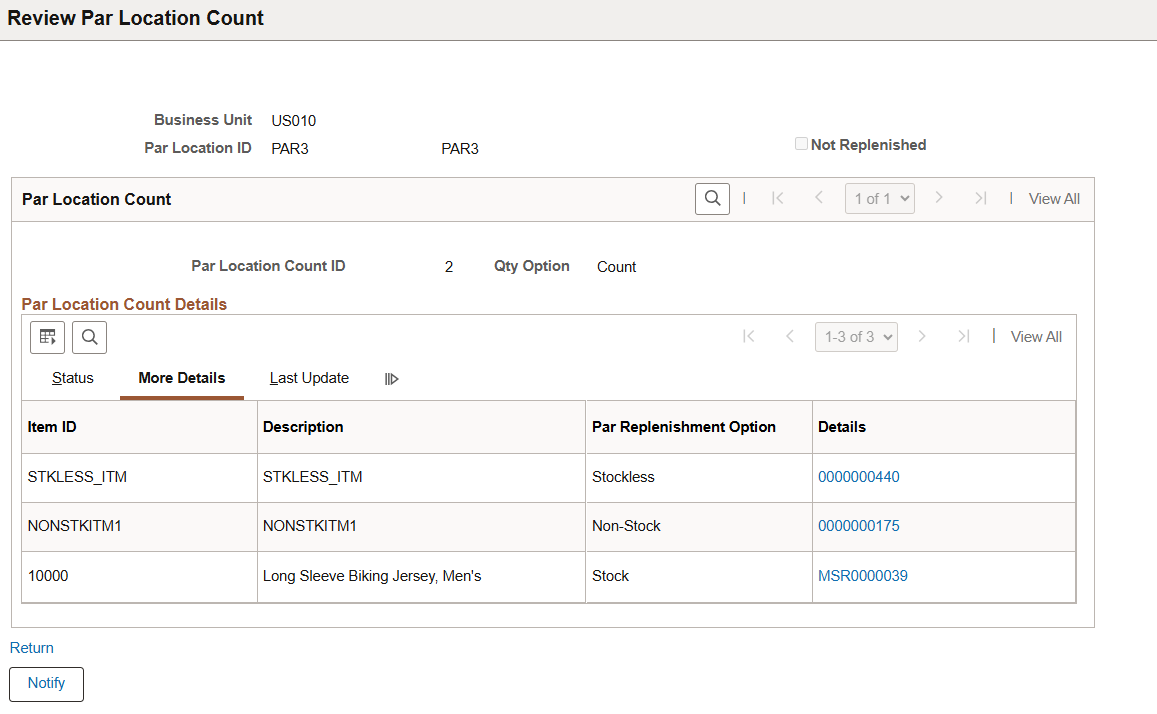
This tab displays the Par Replenishment Option (Stock, Non-Stock, or Stockless) along with the details link.
Click the MSR link for stock items to navigate to the Stock Requests page, where you can review the stock details. For more details, see Stock Requests Inquiry Selection Page.
Click the Requisition link for non-stock items to navigate to the Add/Update Requisitions page, where you can review the requisition details. For more details, see Maintain Requisitions - Requisition Page.
Click the PO link for stockless items to navigate to the Add/Update POs page, where you can review the PO details. For more details, see Maintain Purchase Order - Purchase Order Page.
Note: For stockless items, before running PO Auto Sourcing, the Review Par Location Count page displays the status as PO generation pending. After running PO Auto Sourcing, the PO ID link appears.
This example illustrates the fields and controls on the Review Par Location Count - Last Update page.
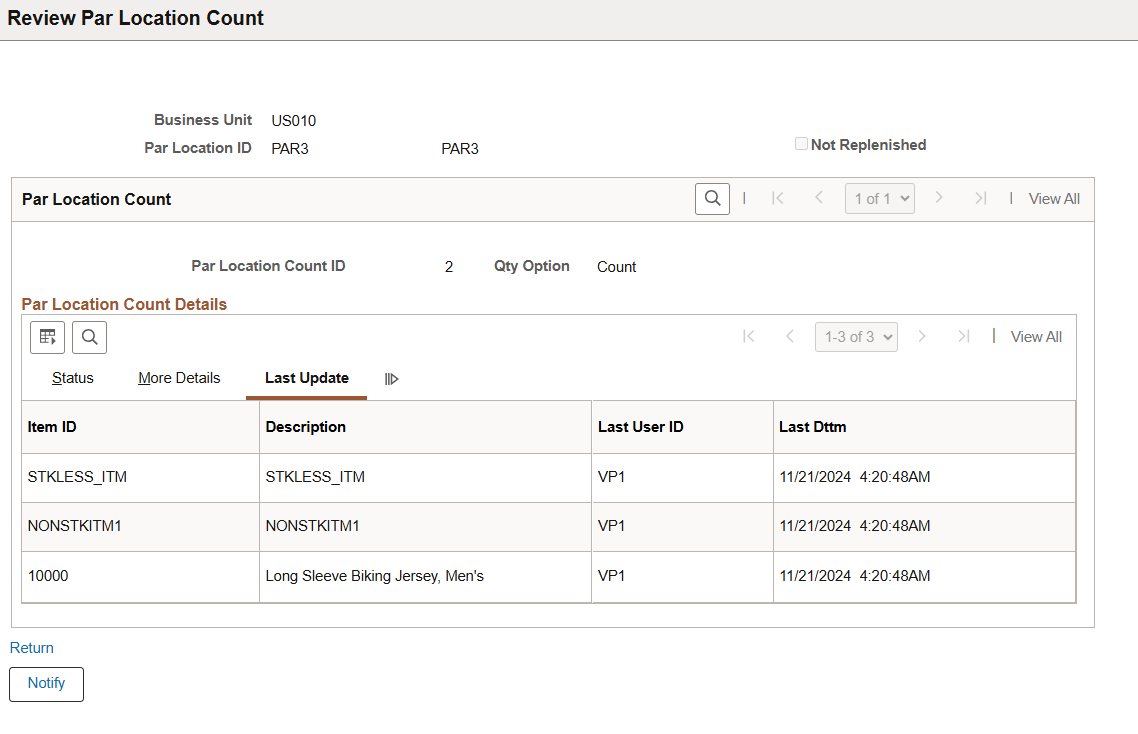
The Last Update tab displays the item details along with who updated the item information and when.
This example illustrates the fields and controls on the Review Par Location Count - Requisition Details page.
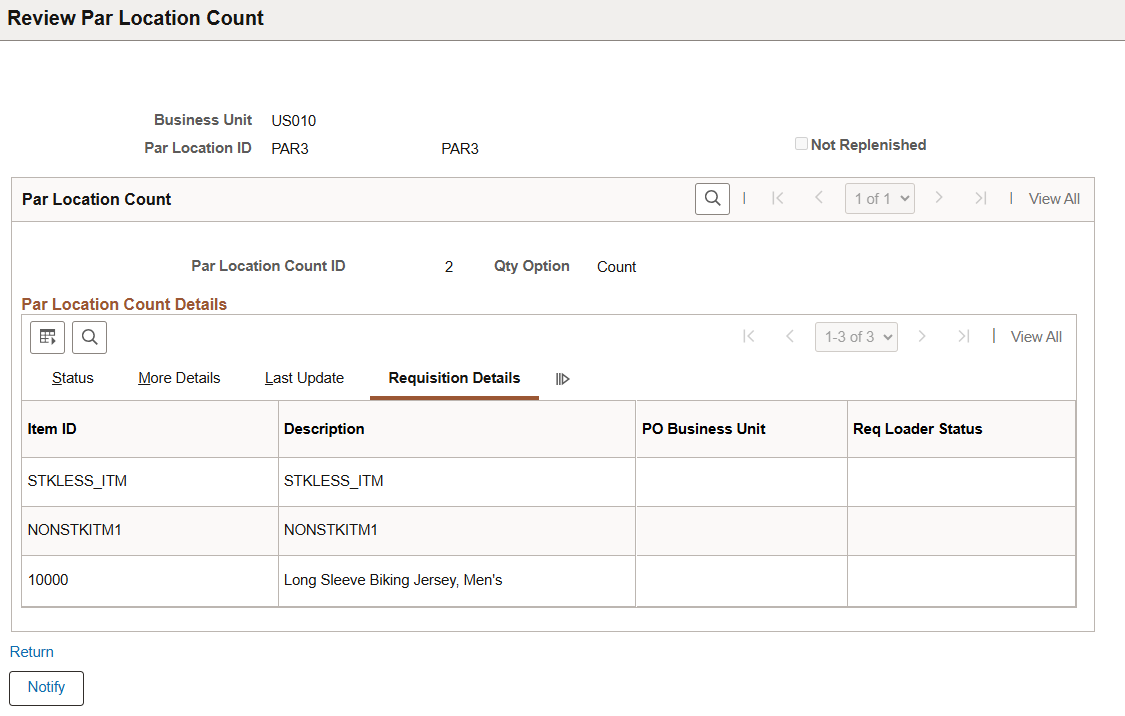
This tab displays the Requisition Loader status (Processed, Ready, or Error). The Requisition Details tab is displayed only if the Create Requisition for Par Replenishment is set to Yes in the Inventory - Installation page.
For information on Inventory Installation options, see Installation Options - Inventory Page.
This example illustrates the fields and controls on the Review Par Location Count - Error page.
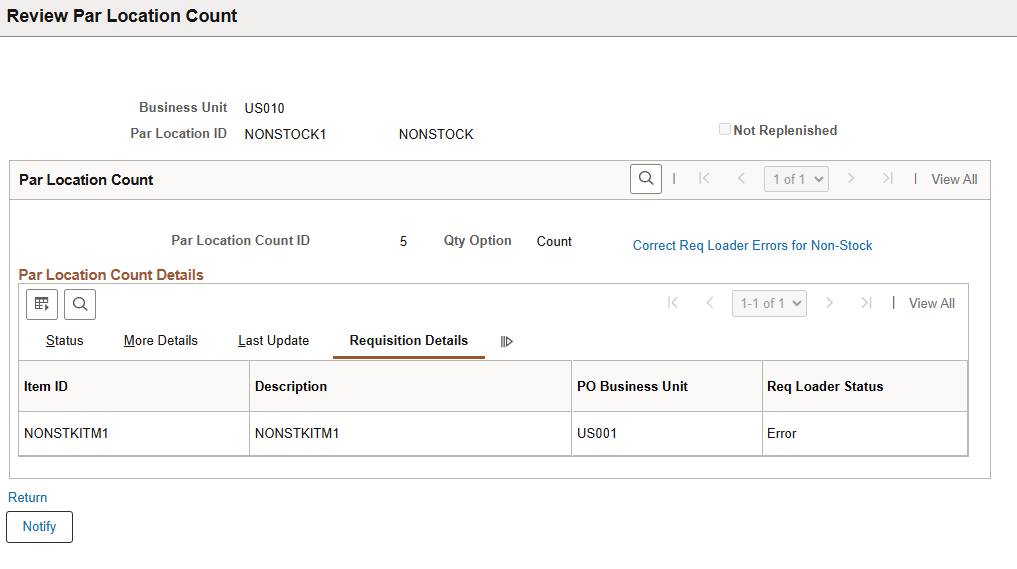
When the Requisition Loader status is Error, the Correct Req Loader Errorsfor Non-Stock link is displayed. You can click the link to navigate to the Manage Req Loader Error page and correct the errors.
This example illustrates the fields and controls on the Manage Req Loader Error page. You can find definitions for the fields and controls later on this page.
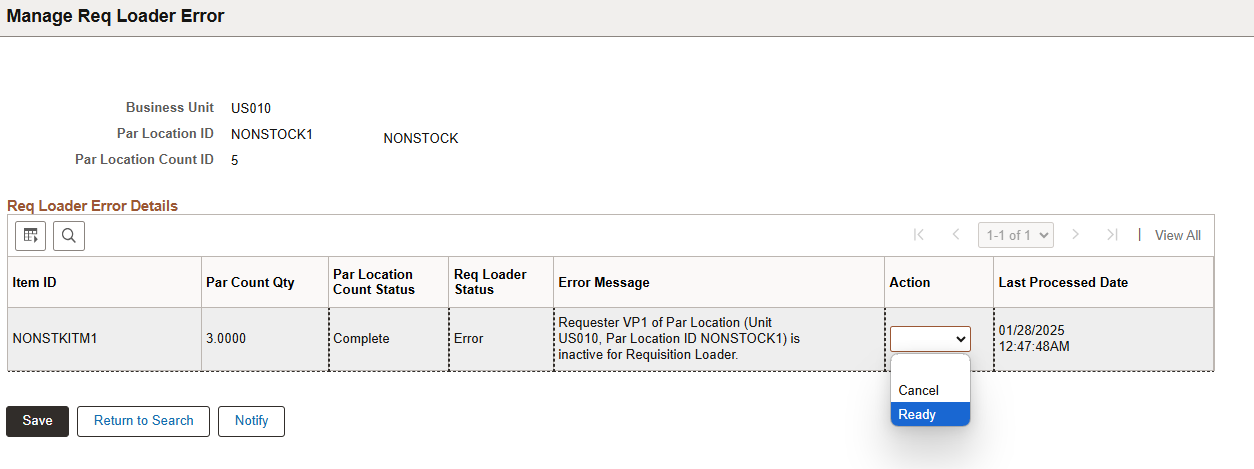
|
Field or Control |
Description |
|---|---|
|
Error Message |
Displays the error details updated by the Load Requisition process. |
|
Action |
Before taking the necessary action, navigate to the respective page and correct the error.
|
Note: If you make any corrections, you have to run the Requisition Loader process manually.
For information on Requisition Loader process, see Loading Requisitions.